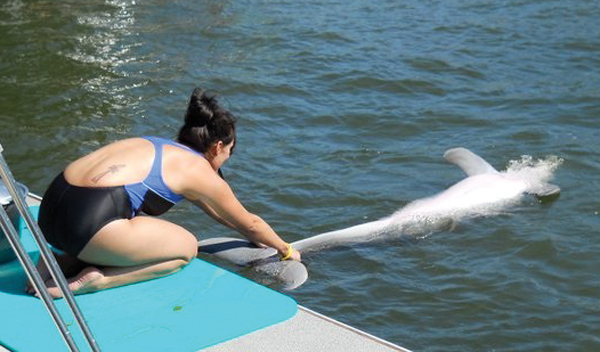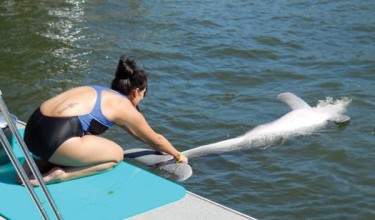

A group of 19 students make up the first group to receive a master’s degree from the new one-year Masters of Professional Science (MPS) program at the Rosenstiel School of Marine and Atmospheric Science (RSMAS).
With 12 different accelerated programs- also known as tracks-MPS is intensive and is intended for students who wish to pursue advanced training in the fields of marine and atmospheric science.
“Demand for people in policy and research management is really growing, and this is a new way to look at graduate education,” said Jill Richardson, the director of the MPS program. “I think that these students will be some of the people solving some of the great issues in conservation.”
Traditional graduate students take nine credits of classes to earn their degree, but students enrolled in MPS need 12 credits, including an internship of their choice.
“These students we have now are busy,” Richardson said. “They’re committed and amazingly dedicated to the process. It works out really well. We want our students to emerge with a tool belt of marketable qualities and skills.”
MPS is the first program of its kind to focus on the marine and atmospheric sciences. Other institutions in the country, like Cornell University and Duke University, have similar programs.
Chris Langdon, an associate professor in the marine biology and fisheries division, has students in the program who intend on interning with organizations like the National Park Service, Carnival Cruise Lines and the Environmental Protection Agency.
“We’re making contact with different internships, learning their issues and concerns,” Langdon said. “That way we can prepare our students with the right kind of skills.”
Hands-on training is a key part of the program. Corinne Butzen, a student on the marine mammal science MPS track, participated in a photo identification of wild dolphins and animal necropsies, as well as the feeding of rehab manatees, at the Miami Seaquarium.
“You have the opportunity for so many great hands on experiences, and they’re relevant to what you’re studying,” Butzen said.
Students also lean about boat operations, diving and tools for better communication.
Renee Carlton, a student on the tropical marine ecology track, said that MPS helped boost her confidence in tropical environments.
“We’ve gone out with different researchers to experiment in sea grass beds, and also with mangrove specialists,” Carlton said. “I feel a lot more prepared than when I came into the program. I’m prepared to go out and find a job.”
Nick Bissel may be contacted at nbissel@themiamihurricane.com.





